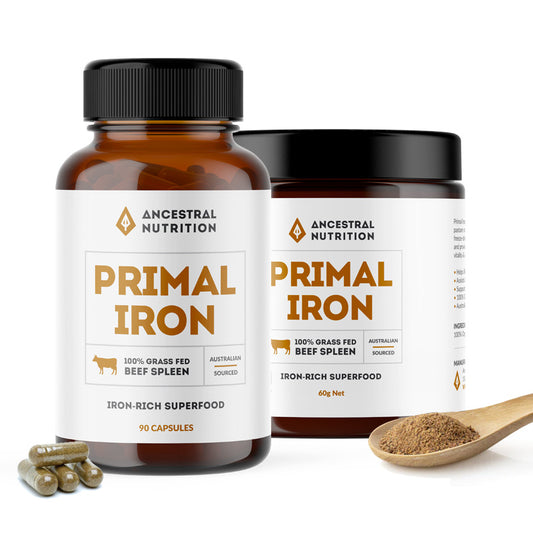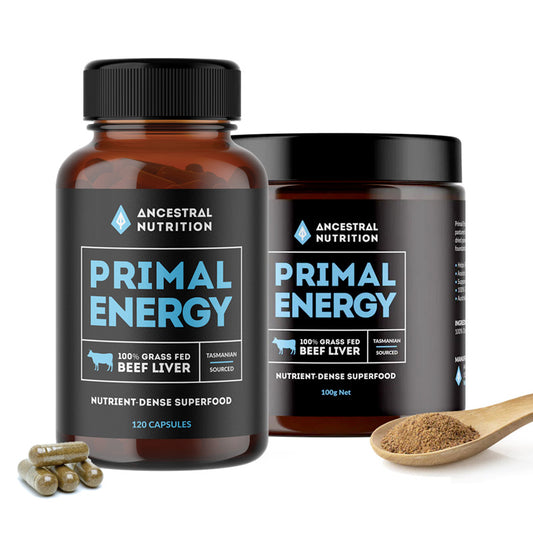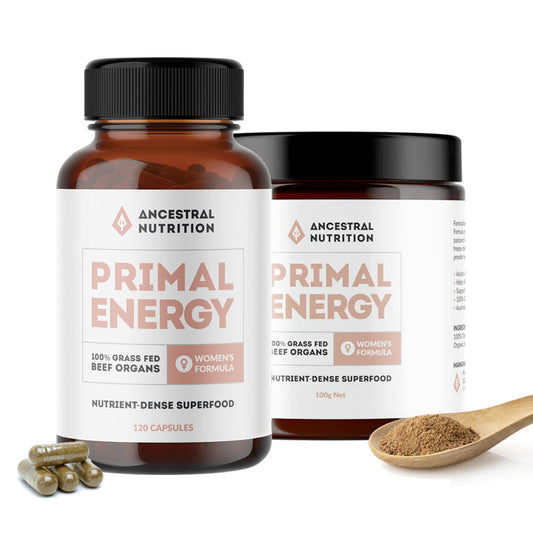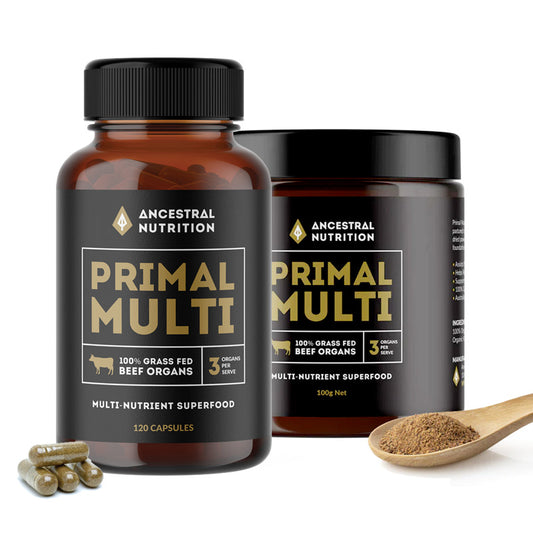Could Vitamin B12 Support Your Natural Sleep-Wake Cycle?
article by Ancestral Nutrition
We all know that nutrition affects how we feel during the day—but it can also influence how we sleep at night. While minerals like magnesium often take the spotlight, another nutrient plays a surprisingly important role in our body’s daily rhythm: vitamin B12.
What Is Vitamin B12?
Vitamin B12 (also known as cobalamin) is an essential B vitamin that contributes to:
- Normal energy metabolism
- The normal formation of red blood cells
- The maintenance of a healthy nervous system
It is also involved in supporting our body's internal daily rhythm, often referred to as the circadian cycle—which helps us feel alert during the day and restful at night.
Vitamin B12 in the Diet
Vitamin B12 is found almost exclusively in animal-based foods. One of the most concentrated natural sources is beef liver, which stores unused B12 in high amounts.
Other sources include:
- Red meat
- Poultry
- Fish
- Eggs
- Milk and dairy products
For those who don’t consume animal products regularly, it can be more difficult to meet B12 needs through diet alone.
Naturally Nutrient-Dense Foods
Beef organs like liver are particularly rich in B12 and other complementary nutrients, including iron, copper, zinc, and B2 (riboflavin)—all of which contribute to energy production and general wellbeing.
They also contain natural levels of other sleep-supportive nutrients such as magnesium and zinc, which play a role in normal nervous system function.
Whole Food, Bioavailable Nutrition
Our freeze-dried beef organ supplements offer a convenient way to incorporate these nutrient-rich foods into your daily routine. Sourced from 100% grass-fed Australian cattle, they are free from synthetic additives and gently processed to preserve their natural nutrient profile.
As always, if you have specific concerns about your sleep or nutrient intake, it’s best to consult a qualified health practitioner. This content is for general informational purposes only and does not constitute medical advice.




